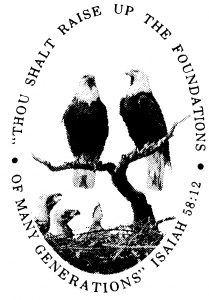Contemplating the Constitution – Part I
James B. Rose and Barbara Rose, American Christian History Institute
Why study the U. S. Constitution?
The United States Constitution describes itself as “the supreme Law of the Land” (Art. 6, Sec. 2) – “supreme” or “highest in authority; holding the highest place in government” [Webster 1828 Dictionary]. Judges in every state, every national congressman, members of every state legislature and all national and state executives “shall be bound by Oath or Affirmation, to support this Constitution.”
SPIRIT AND LETTER OF THE CONSTITUTION
of the UNITED STATES of AMERICA
In the Declaration of Independence, the Framers declared the reason, foundation and the purpose for the Constitution of the United States of America. Both documents are considered part of the “ORGANIC LAW” of our nation. Organic Law refers to “that law or system of principles which defines and establishes the organization of its government. [Black’s Law Dictionary] The Preface to the United States Code Annotated treats the Declaration as part of the organic law of the government of the United States. The Code states that “this code is the official restatement in convenient form of the GENERAL AND PERMANENT LAWS of the United States.”.
The last clause of the U.S. Constitution—the Subscription Clause— attests to the names of WHO affirmed that this Constitution is the genuine document and WHEN it was agreed to — “in the year of our Lord (Jesus Christ) (1787) and of the independence of the (U.S.A) the twelfth (year) ”, thereby dating our form of government from the 12th year of the Declaration of Independence rather than the Constitution.
The Declaration of Independence declares a view of God, man and government which expresses the Spiritual foundation of our Christian form of government— a constitutional, federal republic —which form is the letter, framework and structure of American national government. The Declaration declares four views of God [i.e., Laws of … Nature’s God; Creator; Judge of the World; and divine Providence]; three views of government [Governments…secure… (God-given) rights (to life, liberty and the pursuit of happiness); derive their just powers from the consent of the governed; and whenever any government becomes destructive of these ends, it is the right of the people to alter or to abolish it, and to institute new government]; and two views of man [created equal; and endowed by their Creator with unalienable rights].
Originally published in Eagle’s Aerie, American Christian History Institute,
September 2007. Used by Permission.

